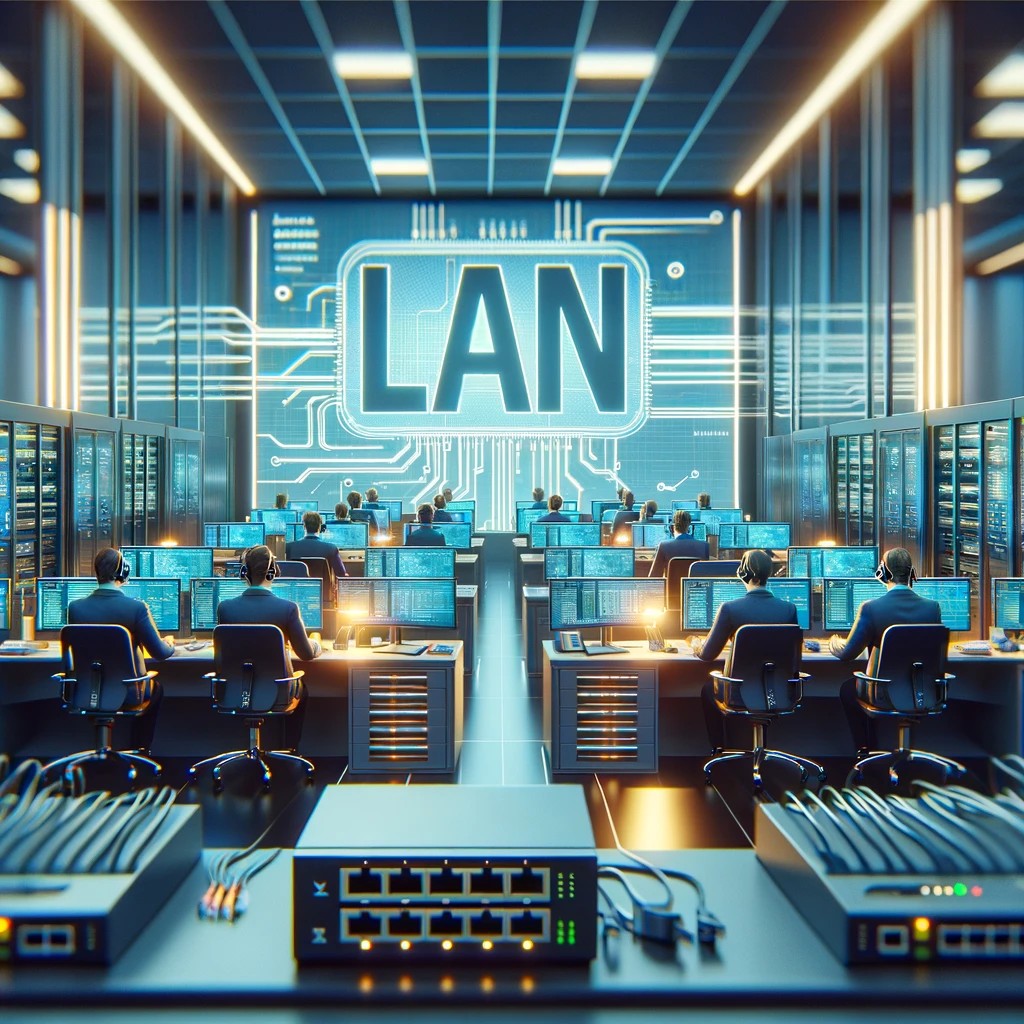
The Local Area Network (LAN) is a critical component of modern business infrastructure, enabling efficient and secure communication within an organization. LAN solutions are designed to facilitate internal data exchange, resource sharing, and communication in a localized environment, such as an office building, a campus, or a specific geographic area.
Key Components of LAN Solutions:
- Networking Hardware: Includes switches, routers, and hubs that manage data traffic and ensure smooth connectivity among connected devices.
- Cabling and Wireless Technology: Ethernet cables (like Cat5, Cat6) are common for wired LANs, while wireless LANs (WLANs) use Wi-Fi technology.
- Network Interface Cards (NICs): Installed in each device, NICs enable communication over the network.
- LAN Software: Involves operating systems and network management tools for monitoring and maintaining network health and security.
Types of LAN Configurations:
- Traditional Wired LAN: Uses physical cables; offers robust security and high-speed connections. Ideal for environments where stability and speed are paramount.
- Wireless LAN (WLAN): Offers mobility and ease of installation. Best for dynamic or temporary workspaces and for supporting mobile devices.
- Virtual LAN (VLAN): Allows network segmentation within a LAN, enhancing security and network management. Suitable for larger organizations needing to separate different departments or types of traffic.
Applications and Benefits:
- Resource Sharing: Facilitates sharing of hardware (like printers), software applications, and data storage among networked devices, reducing costs.
- Communication and Collaboration: Enhances internal communication through email, chat, and video conferencing tools.
- Data Security and Management: Centralized data control allows for better security and data management practices.
- Flexibility and Scalability: Can be customized and scaled according to business needs, with options to integrate with wider networks (like WANs) for expanded connectivity.
Modern LAN solutions are integral to businesses, offering a blend of speed, reliability, and security. They are adaptable to a variety of business environments and are essential for efficient operational workflows. As technology evolves, LAN systems continue to advance, incorporating faster wireless technologies, improved security protocols, and greater integration with cloud services.
